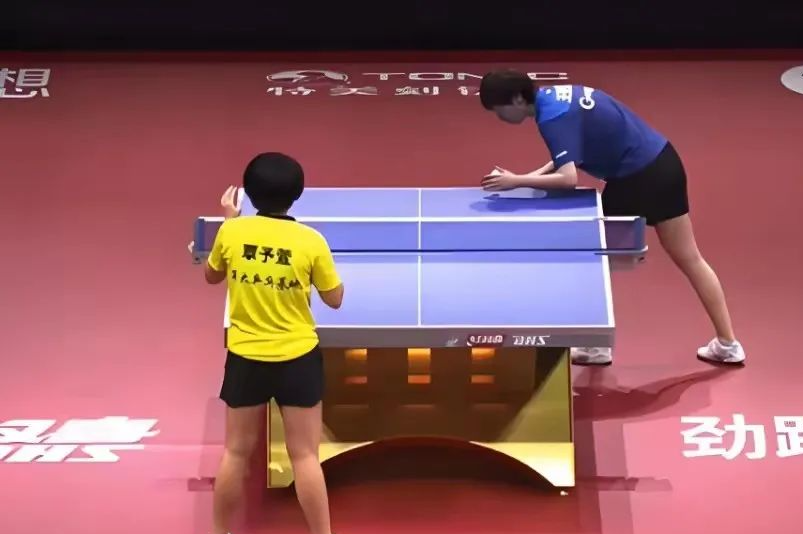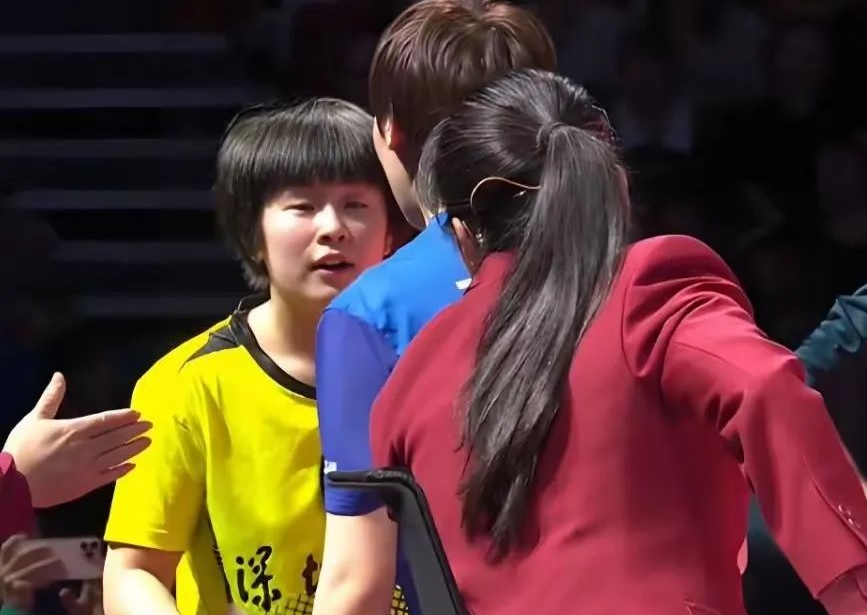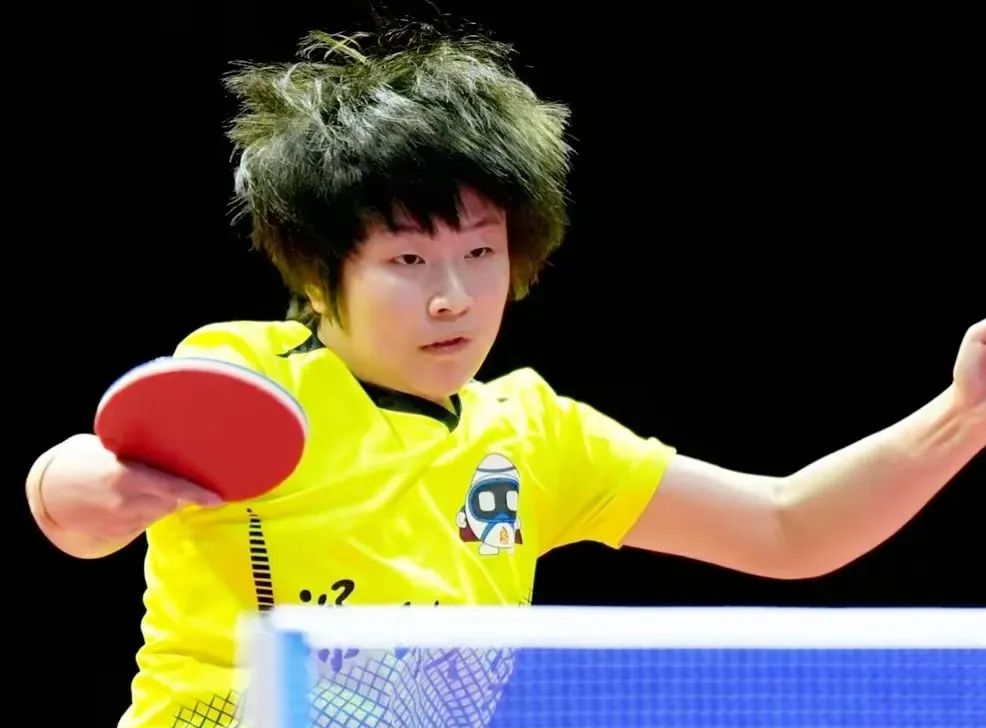In the decisive fifth set of the final, the match was incredibly tense. Wang Manyu had a significant lead in points, and the score was closely contested.
A crucial moment occurred when Wang Manyu served, and both players engaged in a series of moves. Tan Yuxuan's return was extremely low and fast. Wang Manyu thought it was a double bounce and immediately raised her hand to signal to the referee that the point should be awarded to her.
However, she also cleverly returned the ball first, and Tan Yuxuan responded without hesitation. But Wang Manyu, perhaps feeling confident, did not continue to engage with the ball before the referee made a decision.

This is where the problem arose. Later, upon video replay, it was clear that Tan Yuxuan's shot did not double bounce, and both the live commentator and the referee ultimately agreed on this point.
We must understand Wang Manyu's situation; the match was so intense that even following the ball with her eyes was challenging, and making a mistake was understandable. Moreover, the referee initially agreed with Wang Manyu and awarded her the point. This is when a small "loophole" in the rules emerged.
In sports competitions, the referee is the ultimate authority, and their decision is final. Even if an error is discovered later, it is difficult to change the outcome of the match. The Hawk-Eye system was not utilized this time, but why?

Because before the match, it was not clearly stated how this technology would be used, and the Hawk-Eye has always had an "unclear identity" in sports events, with many competitions starting to use it but then discontinuing its use, and the International Table Tennis Federation (ITTF) has also been testing and stopping its use intermittently.
After Tan Yuxuan filed a protest, the referee changed the decision, and Wang Manyu was unhappy, causing the match to stall. According to the rules, once the referee changes the decision, it stands unless Wang Manyu successfully appeals again, but how can the match proceed under such circumstances?
Ultimately, the referee still cancelled Wang Manyu's point based on the video replay.

Regarding Wang Manyu not returning the ball, if we strictly follow the result of no double bounce, her action might have resulted in a loss of points. However, because the referee initially sided with her, it only resulted in the cancellation of her point.
This incident left both sides somewhat helpless. Wang Manyu did not intentionally cause trouble, and Tan Yuxuan's appeal was reasonable. However, it also exposed the ambiguity of the competition rules and the subjectivity of the referee's decisions. As fans watching the game, we must remain calm; sports competitions are inherently unpredictable, which is part of their charm.
In this controversial event, we witnessed the complexity and multifaceted nature of sports competitions.

The tension and desire for victory that athletes experience during matches may lead them to make subjective judgments in an instant;
Referees may also make mistakes or hesitate when faced with complex match situations;
While the introduction of technological means has provided a certain level of assurance for the accuracy of refereeing decisions, if the usage rules are not clear, it can exacerbate controversies.

As fans and spectators, we should maintain a rational and objective attitude when looking at such events, understanding the uncertainties and human factors inherent in sports competitions.
At the same time, organizers and managers of sports events should learn from these incidents, further improving competition rules and refereeing standards, clarifying the use of technological means,
To ensure fairness, justice, and smoothness in sports competitions, allowing athletes to demonstrate their abilities and style in a more equitable and transparent environment, and allowing the spirit of sports to be truly promoted and passed down.